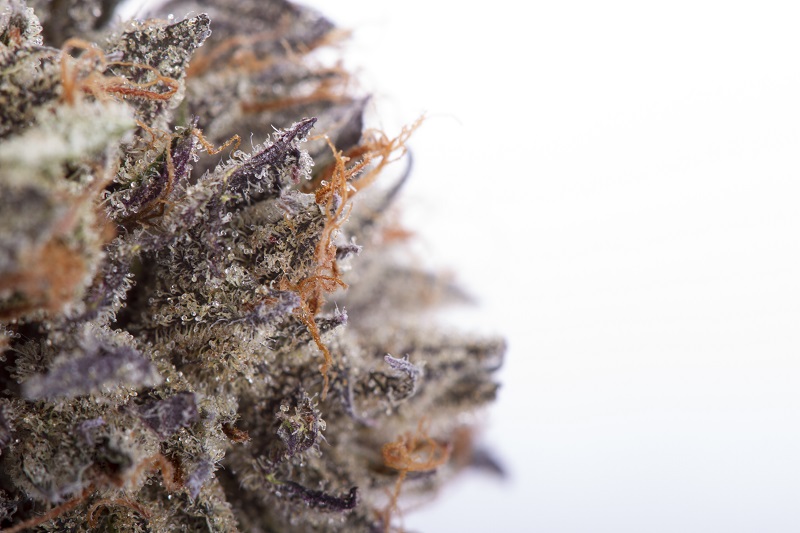High blood pressure is a health concern that affects millions of people worldwide. In addition to increasing your chances of a heart attack, it elevates your stroke and aneurysm risk. With that in mind, it makes sense that those who suffer from hypertension are often trying to find ways to tackle it. Those who prefer to take a natural approach to their health may wonder “Does cannabis lower blood pressure?”
Unlike other areas of medical cannabis research, the answer to this question isn’t so straight forward. The links between cannabis and blood pressure can vary according to the type you’re using. Additionally, the immediate effects of using cannabis can vary when compared with the long-term effects. To develop a better understanding, it’s worth learning more about the different strains. Additionally, you need to know more about how to use Indica or Sativa for high blood pressure.
First, what is high blood pressure?
Ideally, your blood pressure will be between 90 to 120 systolic and 60 to 80 diastolic. When it moves into the 120 to 140 systolic camp, it’s classed as pre-hypertension. At 140+, you’re hypertensive. If you present to a physician with high blood pressure, they’ll probably want to read yours on more than one occasion to make sure what they’re seeing is accurate.
The causes of high blood pressure aren’t always clear. Most people have primary hypertension, for which there’s no real traceable cause but plenty of lifestyle factors might contribute. A small number suffer from secondary hypertension, which can arise following kidney disease and other contributory conditions.
If you do develop high blood pressure, you may find that you’re asked to take diuretics, ace inhibitors, calcium channel blockers, or a combination of the three. The type you’ll need to take will vary according to your age and race, as variations between the two may mean you don’t respond well to certain treatments.
Do cannabis and blood pressure mix?
Cannabis and blood pressure can have a positive relationship, but that might not be your first experience when you use it. According to one study, using cannabis initially results in a small but noticeable rise in heart rate and blood pressure. This rise depends on how much you’re using. The more you use, the higher that rise will be.
It’s possibly worth recognizing that your mode of using cannabis will also influence this. For example, if you choose to smoke it alongside a nicotine-based product you’re introducing your body to other substances that increase blood pressure. Therefore, if you’re serious about using marijuana for this purpose, you’ll stay away from additives that could render your efforts pointless.
Does cannabis lower blood pressure at all?
If you’re wondering “Does cannabis lower blood pressure?” the simplest answer is: yes. However, as we’ve already discussed above, the effects aren’t immediate.
As this study details, cannabis contains multiple compounds and has numerous mechanisms of action that allow it to lower blood pressure. First, there may be some localized cannabinoid receptors on the myocardium (the heart’s muscle) that respond to cannabinoids by slowing your heart rate down. At the same time, the CBD element of your cannabis may execute some cardioprotective factors. So, as you slow your heart rate down, you’ll also protect it against future heart attacks.
The same study also suggests that cannabinoids can influence your blood pressure via the autonomic nervous system. This is the part of the nervous system that automatically responds to changes in your environment, causing your blood pressure to rise and fall. By moderating it with CBD, you could change your blood pressure for the better.
Can you use Indica or Sativa for high blood pressure?
With all this in mind, you’ll now want to know whether to use Indica or Sativa for high blood pressure. As with many elements of medical cannabis, this is an area that’s largely under-studied. However, there are some studies we can turn to that offer useful advice.
This study focused on the use of THC-dominant marijuana in patients with glaucoma who were at risk of losing their eyesight due to rising intra-ocular pressure. Initially, the study participants saw a marked increase in their blood pressure. After a short while, their systolic and diastolic pressure fell, suggesting that the THC present in cannabis can lower blood pressure. As Sativa strains of cannabis have a higher THC content that Indica strains, this suggests it could lower blood pressure within moments of using it.
Another study that takes a different approach looks at the rises in blood pressure among those who abruptly stop using cannabis. Those who chose to stop their daily cannabis habit found that their blood pressure rose by more than 20mmHg at the systolic value, which is the value that carries the most risk. The study’s conclusion was that those who want to stop using cannabis should be monitored to ensure there’s no dangerous rise in blood pressure, suggestions that using it does come with some cardio-protective benefits.
Not-so-surprisingly, there’s more research examining the effects of CBD on hypertension. This study identified how CBD-dominant strains of marijuana, which often means Indica-dominant strains, resulted in vasodilation in rats. As you’re likely aware, narrow and stiffening arteries make a significant contribution to hypertension. If CBD produces a vasodilating effect, this also means your heart isn’t having to pump as hard against your blood vessel walls to send blood around your body. As a result, your blood pressure lowers.
A further study has identified how CBD can cause bradycardia in animals that are conscious. Bradycardia is a state in which your heart rate slows below the average range for an adult. Unless you’re in a hypotensive state, your blood pressure usually lowers too. However, it’s worth noting that while this can mean lower blood pressure, using CBD to the point you become too bradycardic may also lead to your body trying to compensate by raising your blood pressure again.
Overall, it appears Indica is the better choice
Because there is more research confirming the benefits of Indica versus Sativa for high blood pressure, it does appear that it’s the better choice here. Indica often has a higher CBD value than Sativa, and this appears to have the greatest therapeutic benefit in treating conditions such as high blood pressure.
With evidence suggesting that cannabis can lower blood pressure, it’s worth considering among those who are struggling to lower theirs. In addition to acting directly on the heart’s muscle, it also provides it with a small degree of protection. Its vasodilatory effects may result in blood pressure lowering further. If you’re willing to focus on lifestyle factors, it’s worth considering whether the stress-reduction element of using medical cannabis can make your blood pressure less pronounced.
Although research into this area is relatively scant, most of the material that does exist focuses on CBD rather than THC. As such, it may be the case that Indica is the better choice, especially if you want to avoid moderate rises in your blood pressure upon using it. As with any element of your health, avoid stopping your current regime without advice from your doctor. If you do experience high blood pressure, discuss it with a physician before self-medicating.


